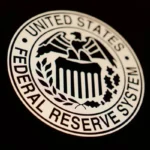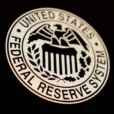
Guest post By Alhambra Investment Partners
We Are Going To Find Out If An Immense Asset Bubble Can Be Carefully And Purposefully Deleveraged
Some people are getting very nervous about China, and as usual that stems from a misreading of the Chinese intentions. This is not to say that one should not be concerned at all, but it is much better to be concerned for the right reasons in order to find a more suitable line of inquiry and analysis. The complications of interpreting the Chinese reform agenda is again the upset in the variables, as most commentary continues to assume the baseline orthodox construal.
Mainline monetarism assumes that all monetary inflows and increases are desirable, a view is amplified when faced with economic stress and the potential for outright recession and dislocation. The current situation in China certainly qualifies under those terms, which is why the monetarist view is so confounded. They simply cannot fathom why the PBOC, or the communist government in general, would not immediately and forcefully undertake any and all “stimulus” means no matter the relative circumstances financially.
At issue right now is the revelation that China suffered the largest “outflows” in history in Q1, which, given the dollar/yuan system, amounts to a “tightening” of the “money supply.” Thus you get this kind of lead commentary:
Capital is flowing out of China at a record pace, sparking fears over financial stability and complicating efforts by the central bank to support a slowing economy with lower interest rates.
China ran a balance of payments deficit of $80bn in the first three months of the year, the largest quarterly net outflow on record, according to official data.
Anachronisms abound in that first sentence, especially the implied idea that the currency is driven by interest rate differentials. The wholesale finance system is affected by interest rates and relative returns, to be sure, but that sentiment is much more complex especially as it relates to funding costs and “dollar” availability. In other words, the idea that “capital” outflows are disassociated with the PBOC’s efforts to “support a slowing economy” mistakes the views on how an economy gains positive factors from financial ones. Monetarism relies on generic interpretations while the real world, especially the realm of wholesale finance, requires much more gradation.














